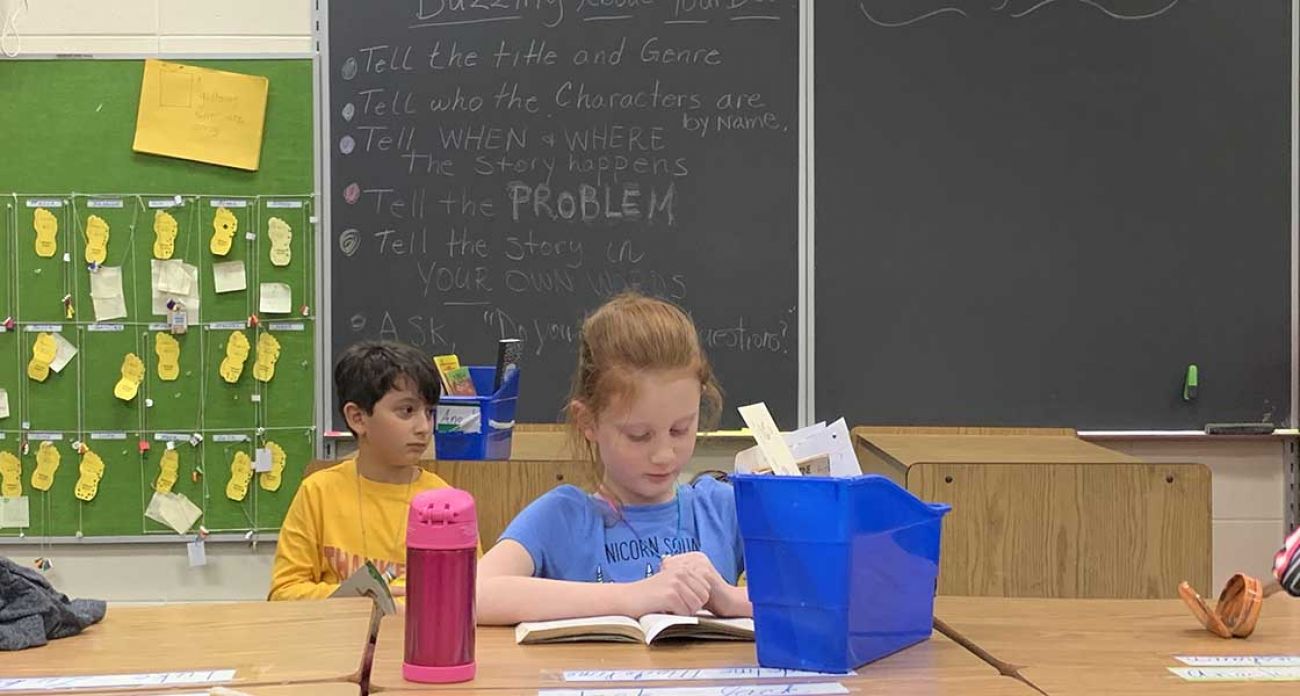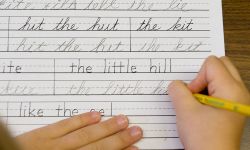Whitmer to end Michigan school year; seniors graduate, others move up

Official April 2: Whitmer closes Michigan classrooms for school year due to coronavirus
Related: What Michigan’s coronavirus school closure means for you
Gov. Gretchen Whitmer is expected to sign an executive order in coming days that will officially close public and private K-12 schools for the remainder of the school year due to the continuing coronavirus pandemic, according to several people directly involved in the drafting of the order or who have been informed of its contours.
Details of the order were still being finalized Monday, but many of the major elements appeared to be resolved, sources said. While sources said that last-minute changes remain possible, the order is expected to say:
- School buildings will be closed for the remainder of the school year, which typically ends in June
- Schools will provide some form of remote learning for students through the remainder of the school year. It was unclear whether that learning would involve grades or be mandatory for students.
- What that learning looks like — online education, printed packets of school work that students can work on at home, or a combination — will be developed by individual school districts and approved by intermediate school districts based on the resources available in schools and in student homes.
- High school seniors will graduate, even if they were still taking courses required for graduation by the Michigan Merit Curriculum this semester, as long as their school district determines they were on pace to graduate before the state-mandated shutdown March 16. Several school sources said they anticipated statewide graduation rates to be as high or higher than normal.
- Students in grades kindergarten through 11th grade will advance to their next grade at the beginning of the next school year, assuming their school district determines they were on pace to advance before the shutdown.
- Schools will receive their full state funding through the end of the school budget year, which runs through June 30. State funding to school districts is determined by the number of students enrolled.
- To get that state funding, schools must agree to continue to pay school employees, including teachers, through the end of the school year, which ends June 30
- Michigan’s third-grade reading law, which recommends third-graders who are more than a year behind in reading be retained in third grade, will not be enforced this year. This would have been the first year the law went into effect. Even if students had returned to classrooms April 14, as had been the plan, third-graders would have missed a critical four weeks of reading instruction before taking the M-STEP, Michigan’s standardized test. Reading scores on the M-STEP were to be used to identify struggling readers for retention.
- Current high school juniors will be given an opportunity next fall to take the SAT at the expense of the state, to make up for the state-funded college entrance exam they would have taken in March if schools had not been closed.
A spokesperson for the governor declined to confirm outlines of the order on Monday, telling Bridge the Whitmer administration was “reviewing the issue” of whether schools should reopen this school year, and “when we have more to share we will update the press and residents.”
Details of the plan were given to Bridge by two people familiar with the drafting of the executive order and four people who have been informed of the draft’s outlines.
One high-ranking school official said the order remained “fluid,” and changes could be made before it is announced.
The order does not include extra money from the state for school districts to develop and carry out remote learning programs for the next two months, several people familiar with the order said.
It was unclear whether the remote learning for the last two months of the school year would be required of students or voluntary. It was also unclear whether the continued learning would advance curriculum in subjects, or merely reinforce learning that took place before the school closures.
One person involved in meetings with the Whitmer administration called the draft order “the best it can be at this moment. We can only deal with what we can deal with. We’re in a pandemic. None of us have been here before.”
Whitmer initially ordered schools closed from March 16 through April 5, and last week tacked on an additional week as part of a statewide stay-home order that runs through midnight April 13. She recently said in a radio interview that schools are “very unlikely” to reopen this school year.
Several states, including Kansas, have previously closed their schools for the remainder of the school year.
RESOURCES:
- Michigan families can get food, cash, internet during coronavirus crisis
- How to give blood in Michigan during the coronavirus crisis
- Michigan coronavirus Q&A: Reader questions answered
- How to apply for unemployment benefits in Michigan amid coronavirus crisis
- How to get tested for coronavirus in Michigan
- The first line of defense against coronavirus: Try soap, not a mask
Michigan Education Watch
Michigan Education Watch is made possible by generous financial support from:
Subscribe to Michigan Education Watch
See what new members are saying about why they donated to Bridge Michigan:
- “In order for this information to be accurate and unbiased it must be underwritten by its readers, not by special interests.” - Larry S.
- “Not many other media sources report on the topics Bridge does.” - Susan B.
- “Your journalism is outstanding and rare these days.” - Mark S.
If you want to ensure the future of nonpartisan, nonprofit Michigan journalism, please become a member today. You, too, will be asked why you donated and maybe we'll feature your quote next time!






